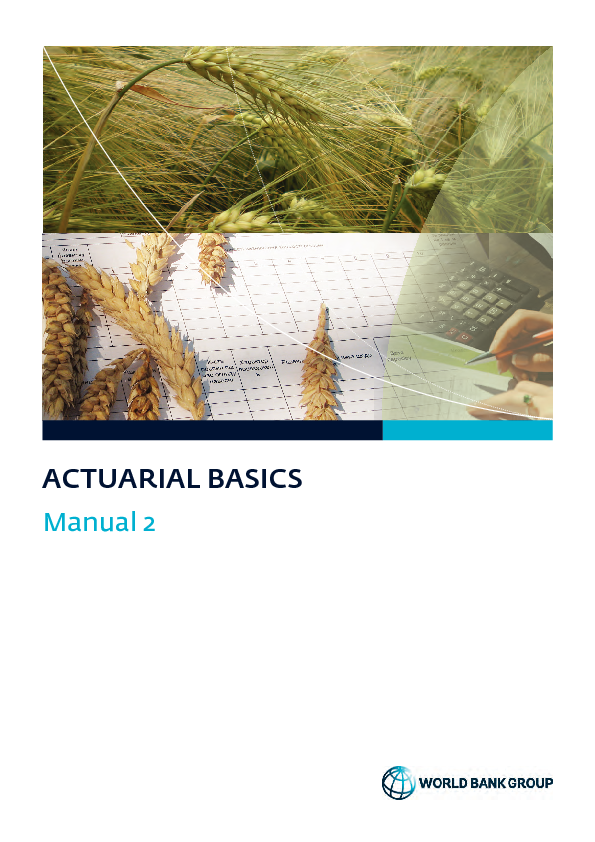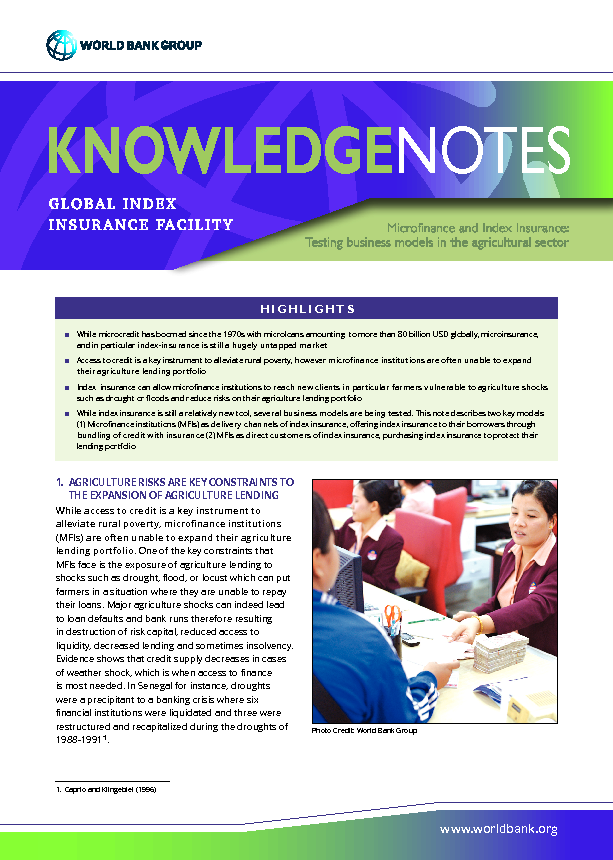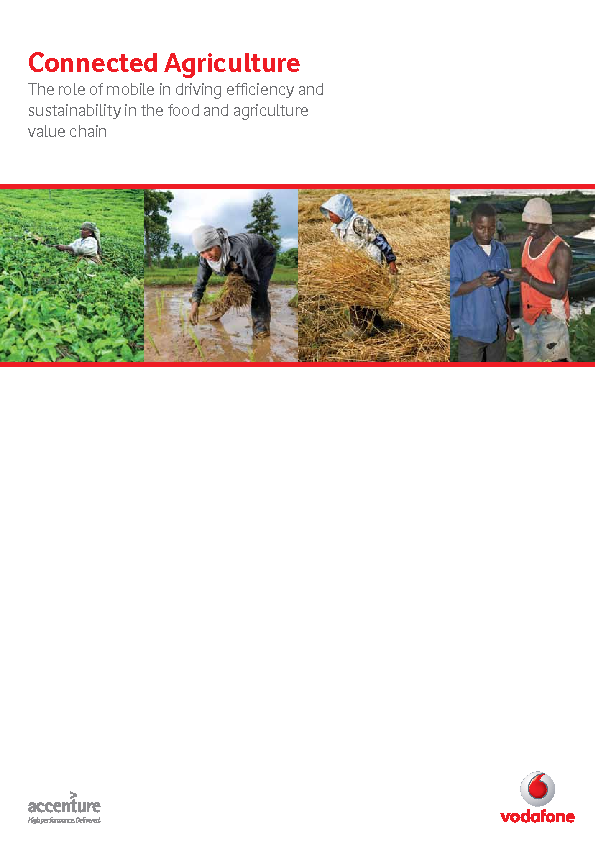IFC, a member of the World Bank Group, and PT Reasuransi MAIPARK have agreed to jointly develop index-based insurance products to hedge risks against adverse weather events for agribusinesses, bank agriculture-loan portfolios, and farmer groups. The impacts and effects of adverse weather events—such as droughts, floods, and hurricanes—were felt during the most recent El Niño, when some of the worst hit agribusinesses reported up to 30 percent drops in projected yields. IFC will support MAIPARK—a special-risk reinsurance company—to work with local insurance companies to develop, sell, and...




